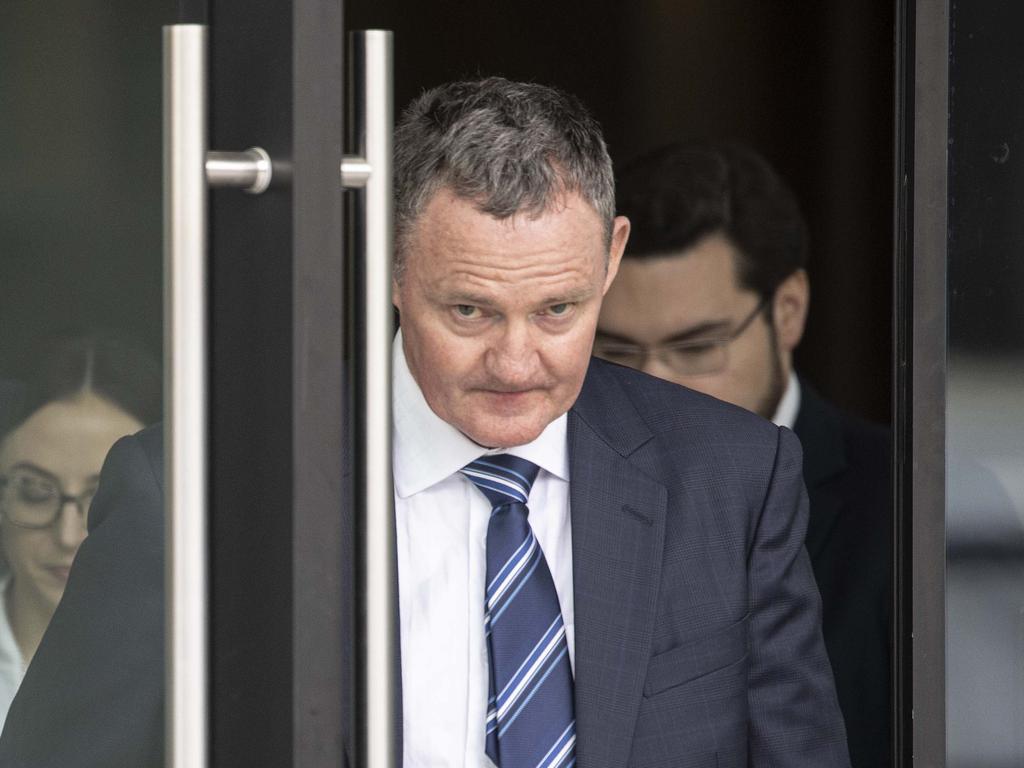AFP detective inspector ‘traumatised’ at prospect of Bruce Lehrmann rape conviction
A lead investigator in the Bruce Lehrmann case was distressed by the prospect of a conviction over the rape of Brittany Higgins, inquiry told.
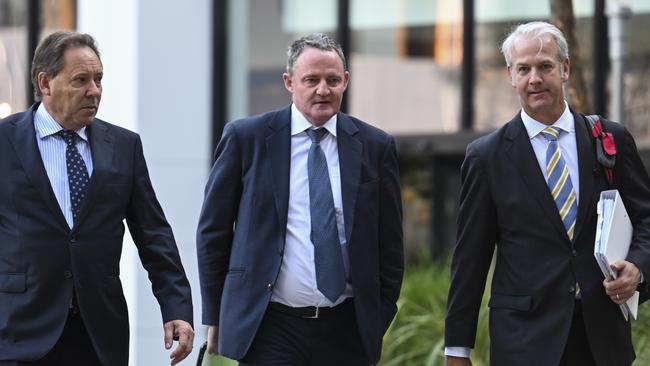
Allegations by ACT chief prosecutor Shane Drumgold that former Liberal minister Linda Reynolds was engaged in a political conspiracy to cover up rape allegations by Brittany Higgins should never have been put to the jury in the case, the Sofronoff inquiry has been told.
Bruce Lehrmann’s lawyer, Steven Whybrow SC, told the inquiry on Monday he was “pissed off and angry” about Mr Drumgold’s claims of political interference, which were retracted last week but made when Senator Reynolds took the stand to give evidence at the trial.
The inquiry also heard how one senior police officer was so “morally traumatised” at the prospect of Mr Lehrmann being found guilty that he contemplated resigning, and Mr Whybrow believed 10 of the 12 jurors would have voted for an acquittal.
In other evidence, Mr Whybrow said Mr Drumgold refused to tell him what he planned to say during the announcement that he was dropping the rape charge against Mr Lehrmann, before delivering a prepared speech that conveyed his client was guilty.
Much of Mr Whybrow’s evidence on Monday concerned what he believed was an improper attempt to discredit Senator Reynolds as a witness at trial.
She had strongly denied claims by Ms Higgins that she pressured the staffer not to pursue her claims, in the context of an upcoming election.
Mr Drumgold told the jury in his closing submission: “It is clear that there are strong political forces at play here.”
Mr Whybrow was so incensed by the claims he wrote an email to Mr Drumgold about what he considered improper conduct, including that he was getting “coaching tips” for his cross-examination from Senator Reynolds.
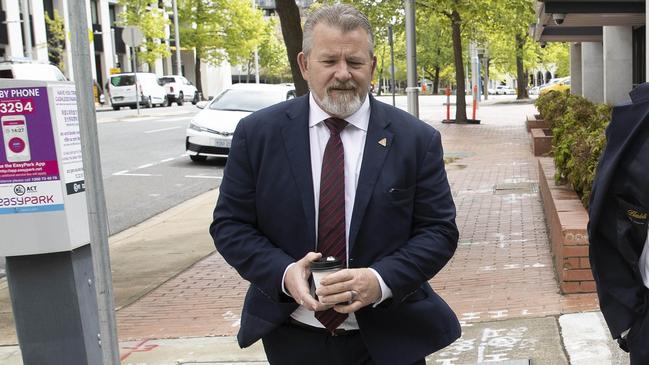
“I don’t hold a candle for Senator Reynolds but (the accusations) were unfair and as far as I was aware, untrue, and played on this so-called political cover-up conspiracy – that Brittany couldn’t complain because all of these things were happening – when there was no actual factual, evidential basis for it,” Mr Whybrow told the inquiry.
He said that during the course of the trial, Mr Drumgold raised concern that Senator Reynolds’s partner was sitting in the back of the courtroom.
“That confused me considering that sitting in the back of the court … was (Victims of Crime Commissioner Heidi) Yates, (Ms Higgins’s friend) Ms Webster, her own lawyer and a whole lot of other people from, if you like, that camp, sitting there throughout it, so I couldn’t understand why Linda Reynolds’s husband sitting in the back of the court presented any different problem. He raised a concern that she might be getting information or having access to information that she shouldn’t.”
Mr Whybrow informed Mr Drumgold that he had received a text from Senator Reynolds asking if he could send transcripts of the proceedings to her solicitor.
To alleviate Mr Drumgold’s concerns, Mr Whybrow showed him the text messages he had exchanged with Senator Reynolds, to reassure him there was no impropriety. “I was trying to allay those concerns … I said ‘you shouldn’t even really talk to (your partner) about it’,” he said.
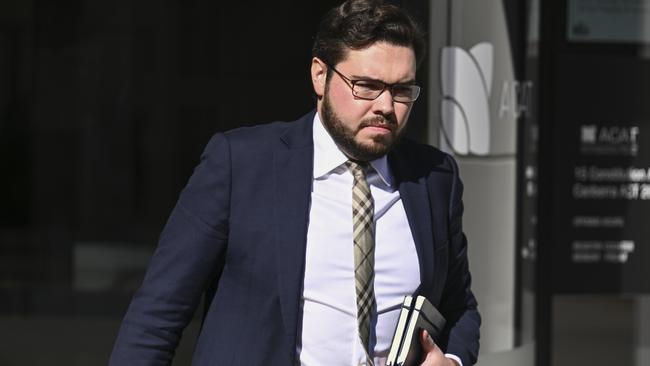
However, Mr Drumgold read another message where Senator Reynolds had suggested “if you have text messages between Brittany and Nikki they may be revealing”. Mr Whybrow said there was nothing untoward about the suggestion. “So what? A lot of people have given us suggestions over the months,” he told the inquiry.
He said he showed Mr Drumgold the text messages in order to allay his concern that the senator was “doing anything she ought not be doing” but Mr Drumgold then used them to discredit her on the stand. “The DPP, again, weaponised and put them as positive propositions,” Mr Whybrow said.
“He was cross-examining his own witness to discredit her on credibility, not to test something unfavourable to the crown case.”
“I was pissed off, I was angry, and I wrote … to him about what I considered improper conduct.”
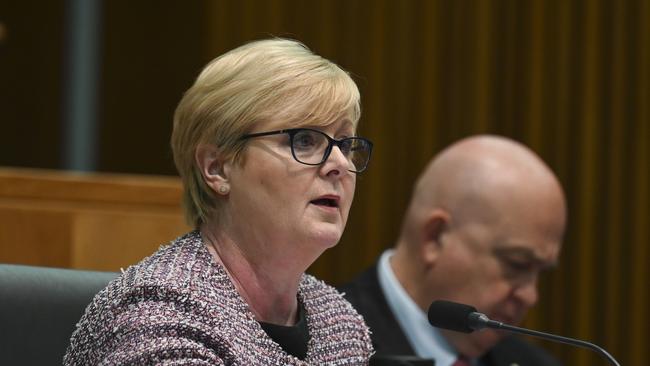
Inquiry chair Walter Sofronoff pointed out to Mr Whybrow that in his evidence last week, Mr Drumgold said he believed the trial had gone well for him and 11 jurors were in favour of conviction. “So each of you were looking at the same trial and each of you came to diametrically opposed views as to who’s going to win, to put it colloquially?
Mr Whybrow: Well, correct. I didn’t know if we were going to succeed in a ‘not guilty’ given all the pretrial publicity, but for what it’s worth, Mr Chair, we as the defence team thought there were 10 people on the jury who were in favour of an acquittal.”
He agreed that guessing jurors’ views was “a pointless exercise”.
Mr Whybrow said Mr Drumgold had refused to tell him what he planned to say at a press conference where he revealed he was dropping the rape charge.
“I was concerned it might contain statements that were not appropriate to be made when one is just simply withdrawing a prosecution,” he said.
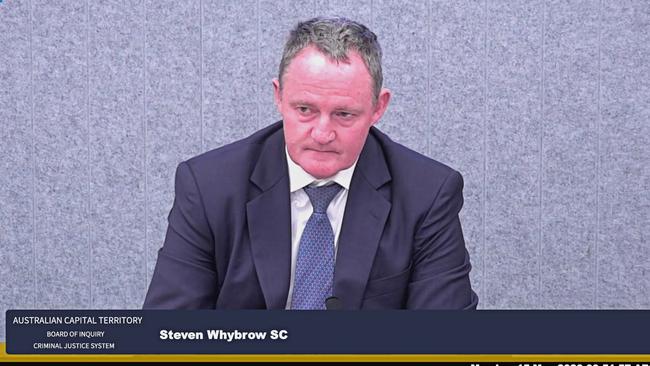
On December 2, Mr Drumgold announced he would not prosecute the case again because of the impact it would have on Ms Higgins’s mental health.
“It included an opinion … that he still considered there were reasonable prospects of obtaining a conviction … and Mr Lehrmann was in fact really guilty,” Mr Whybrow told the inquiry.
In cross-examination by Mark Tedeschi KC, acting for Mr Drumgold, Mr Whybrow said he got no impression during the trial that police wanted a not guilty verdict or were not doing their job professionally but he agreed that while the jury was deliberating Detective Inspector Marcus Boorman told him he believed the former ministerial staffer was innocent and if Mr Lehrmann was found guilty, he would resign.
“He was somewhat distressed; my impression was a sort of moral trauma,” he said.
Additional reporting: Remy Varga

